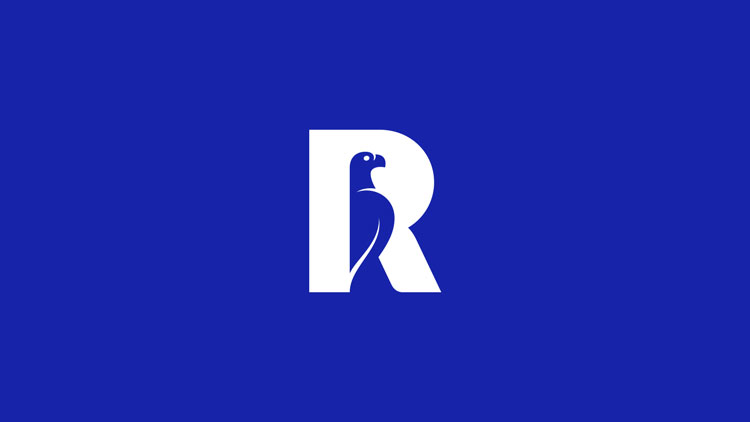
It must have caught your attention in the news that final-year law students from India- Anupriya Dhonchak and Misbah Reshi have been awarded the Rhodes scholarship to pursue their post-graduation degree at Oxford University. The prestigious Rhodes scholarship established through the Will of Cecil John Rhodes was first awarded in 1902, which enables young pupils from around the world to complete their master’s degree from the University of Oxford in the United Kingdom. It offers hundred fully funded post graduation scholarships each year including masters in law. The scholarship aims to select outstanding young people who can lead and make an impact on the mankind with their leadership. Do you think you have the resolve and calibre to become one of such scholars? Without further ado, let’s find out.
WHAT DOES THE COMMITTEE LOOK FOR?
The Selection Committee not only selects candidates on the basis of intellect but also on the basis of leadership, character and commitment to service. The four criteria which governed the selection of Rhodes Scholars in 1902 are still the guiding criteria for the selection of Rhodes Scholars till date, which are:
- Academic achievement and excellence
- Determination to make the most of one’s abilities as demonstrated by mastery in areas such as sports, debate, dance, music, theatre, and artistic pursuits particularly where teamwork is involved
- Truth, devotion to duty, courage, sympathy for and protection of the weak, kindliness, unselfishness and fellowship
- Moral force of character and instincts to lead and to take an interest in fellow beings i.e. having a commitment to make a difference in the world
ELIGIBILITY CRITERIA FOR THE SCHOLARSHIP
Each applicant must fulfill the citizenship and residency requirements of the Indian constituency. There are five scholarships available each year for Indian applicants. The first Indian Rhodes Scholarship was awarded in the year 1947 and since then over two hundred Indians have secured this scholarship. The important principal criteria to keep in mind while applying for the scholarship are:
- Citizenship: You must be a citizen of India, holding an Indian passport, or equivalent proof of citizenship; PIO or OCI cardholders do not satisfy the Indian citizenship criteria for this purpose.
- Education: You must have undertaken formal study at an educational institution in India for a minimum of 4 years of the last 10 years, and have either completed a school-leaving exam (10th/12th standard or equivalent) at a school in India, or have received their undergraduate degree (or be in the final year of an undergraduate degree at a university in India).
- Age: You must be at least of the age 18 and have not reached your 24th birthday; OR (for older candidates) you must have not reached your 27th birthday i.e. you have met or will meet the academic requirements for completing your first undergraduate degree on or after 1 October of a particular year.
- Academic Achievement: You must have completed or will have completed your undergraduate degree with First Class i.e. with a GPA of 3.7 out of 4 or higher, or equivalent academic level.
- Not Selected: If you are unsuccessful in your first application, you may subsequently re-apply only one more time from the Indian constituency, subject to meeting the eligibility criteria.
HOW TO APPLY
Applications for the Rhodes Scholarships open from June at the official website via the scholarships tab. The application must be submitted online with all supporting documents by August (the original documents are required to be furnished at the time of interview). As part of the application process, the applicant will be expected to write a personal statement as well as identify four referees who will address their references (must be written in English) to Rhodes Scholarship Selection Committee. The referees in this regard are not typically personal friends, contemporaries or relatives; however, if a referee is from one of these categories, they should make the connection clear within the reference. An academic statement of study of not more than 750 words has to be submitted as well. Further, the applicants are required to submit other documentation such as transcripts, CV, etc. A full curriculum vitae, not exceeding two A4 (12 pt font size) pages should include details about academic qualifications, prizes, scholarships, positions of leadership, employment positions, involvement in student, voluntary, community or political activities and any cultural, musical or sporting accomplishments. It should be wholly accurate and a fair representation of the achievements- in case of material misrepresentation, it will result in disqualification of the application and rescinding of scholarship.
In accordance with the aforementioned application, the candidates will be longlisted. The longlisted pupils will be invited to attend a preliminary interview, which may be held in person or via video conference. Candidates shortlisted on the basis of preliminary interview will be invited to a social engagement (a tea or dinner with the selection committee hosted by the Chairman) and a final interview. It is required that candidate must be available to attend in person- both the social engagement and the final interview, which are generally held in October or November because no candidate will be selected without an interview. It is to be noted that the final interview is granted entirely on the discretion of the Selection Committee. A domestic travel allowance for candidates invited for the final interview will be paid by the Rhodes Trust. International travel will not be reimbursed. At the end of the selection process, all applicants will be emailed with the outcome of their application.
Here, you must be wondering what to expect in the interview. Please note that selection committees are made up of Rhodes Scholars and community leaders from diverse backgrounds, and the interview process to determine candidacy is of core importance as it is the opportunity to weigh a candidate’s depth of engagement, accomplishments, and aspirations. In posing their questions, committee members initiate discussion that will help them ascertain who best represents the potential they are looking for. Proven intellectual and academic attainment of a high standard is the first quality required of scholars, but they are also required to show exceptional character, leadership in extra-curricular activities, and a commitment to service in the public good. The interview will therefore be wide-ranging in nature, designed to test intellectual skills and reasoning ability, and also to reveal the applicant’s character, core commitments, and potential to make a positive contribution to society. Now that we have familiarised ourselves with the application and selection process of the scholarship, it is only logical that we discuss what is covered in a Rhodes scholarship which makes it the most sought after scholarships.
WHAT IS COVERED IN THE SCHOLARSHIP
The Rhodes scholarship is offered for two years in the first instance; however, the tenure can be extended on the choice of post-graduation degree. The scholarship covers Oxford University fees as well as annual stipend (from which scholars pay all living expenses including accommodation). The Rhodes Trust also covers the fee required to apply to study at the University of Oxford i.e. the fee for a Tier 4 study visa and the associated International Health Surcharge (IHS), which enables international students to access the UK’s National Health Service. Further, it covers two economy class flights – to and from the UK – at the beginning and end of studies in Oxford. On arrival at Oxford, scholars receive a settling in allowance as well and for pupil who transition to a second course of study, they again receive assistance to cover the fee for visa renewal and further application for IHS. More so, on application, a number of research grants are also available to Rhodes scholars, which enable them to attend international conferences or conduct additional fieldwork.
CONCLUSION
Securing Rhodes scholarship comes with obvious benefits. The scholars enjoy the numerous educational and world-class opportunities that the fellowship provides. More so, with the opportunity to live in another country and study under an entirely different educational system, it expands the scholar’s vision and exposure to the world at large. However, no discussion of the Rhodes would be complete without mentioning that it is inarguably the most prestigious international scholarship available, and its name carries a great deal of weight. However, applying for the Rhodes solely for the sake of its prestige is not recommended, as this motive will not be reflected favorably in the application. Nevertheless, once a candidate becomes a Rhodes Scholar, they have many educational and career opportunities open up for them as you join the ranks of the Rhodes’ many notable and influential alumni in myriad spheres of life.
YLCC would like to thank Shivani Bharti for her valuable insights in this article.




